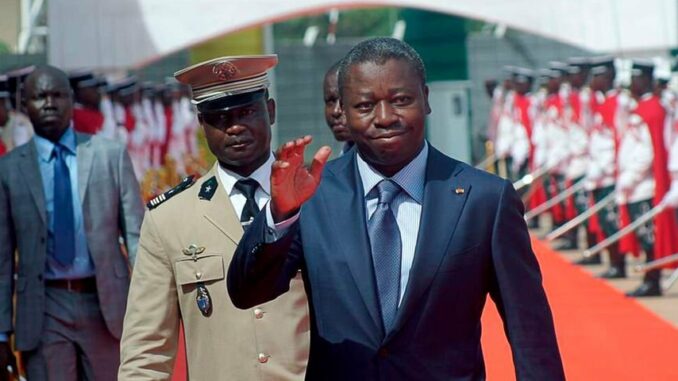
In Togo, activists and opposition leaders are mobilizing against the imminent endorsement of a new constitution by President Faure Gnassingbe. The proposed constitution, approved by lawmakers, eliminates future presidential elections, potentially prolonging Gnassingbe’s rule until 2031. It grants parliament the authority to select the president, sidelining direct elections and likely securing Gnassingbe’s reelection when his current term ends in 2025.
While some legal experts suggest the constitution introduces constraints on future presidents with a one-term limit and enhanced powers for a prime minister-like figure, opposition groups fear it will only serve to consolidate Gnassingbe’s grip on power. Moreover, the new constitution extends presidential terms from five to six years, disregarding Gnassingbe’s lengthy incumbency inherited from his father.
Opposition parties, along with clergy members, condemn the proposed constitution as a tactic by Gnassingbe to extend his tenure and have vowed to resist its implementation through public protests. Eric Dupuy, a spokesperson for the opposition National Alliance for Change party, asserts their commitment to thwart what he calls a “constitutional coup d’état.”
However, authorities disrupted an opposition-led press conference, forcibly removing leaders and journalists, indicating the government’s crackdown on dissent. Togo’s Catholic bishops argue that the parliament’s mandate expired before the proposed constitution’s approval, invalidating the process. They urge Gnassingbe to postpone endorsement and engage in inclusive political dialogue after the upcoming parliamentary elections.
Legal scholars, including Zeus Ajavon from the University of Lome, assert that parliament lacks the authority to amend the constitution, advocating for revisions within its term or via a referendum. With a population of around 8 million, Togo has been under the rule of the Gnassingbe family for 57 years, marked by contested elections and persistent opposition.
